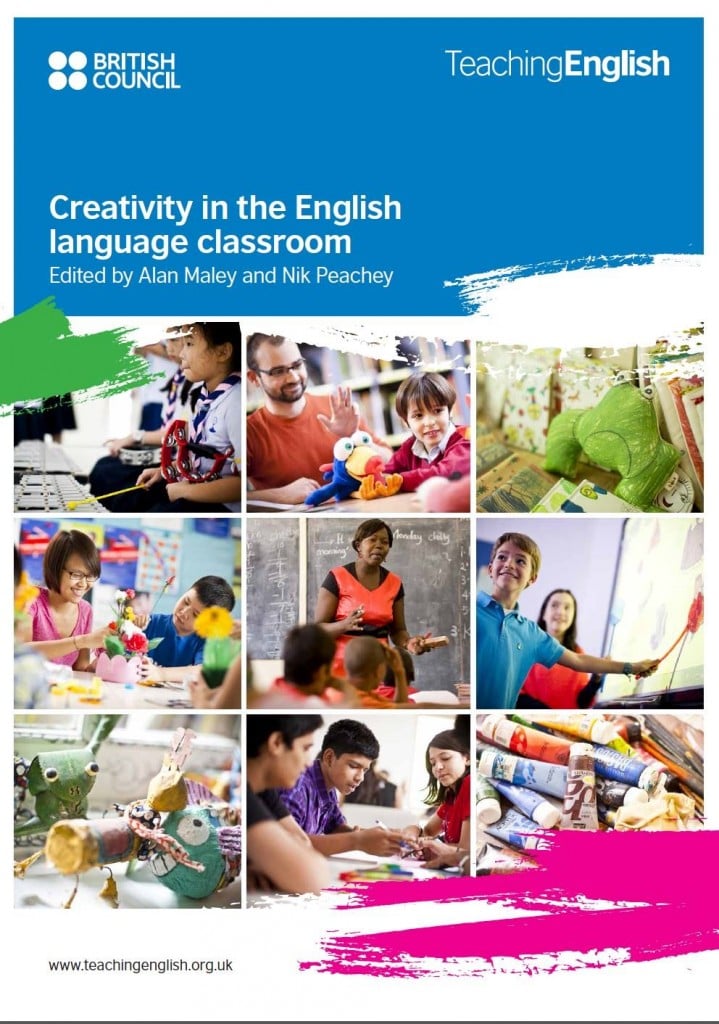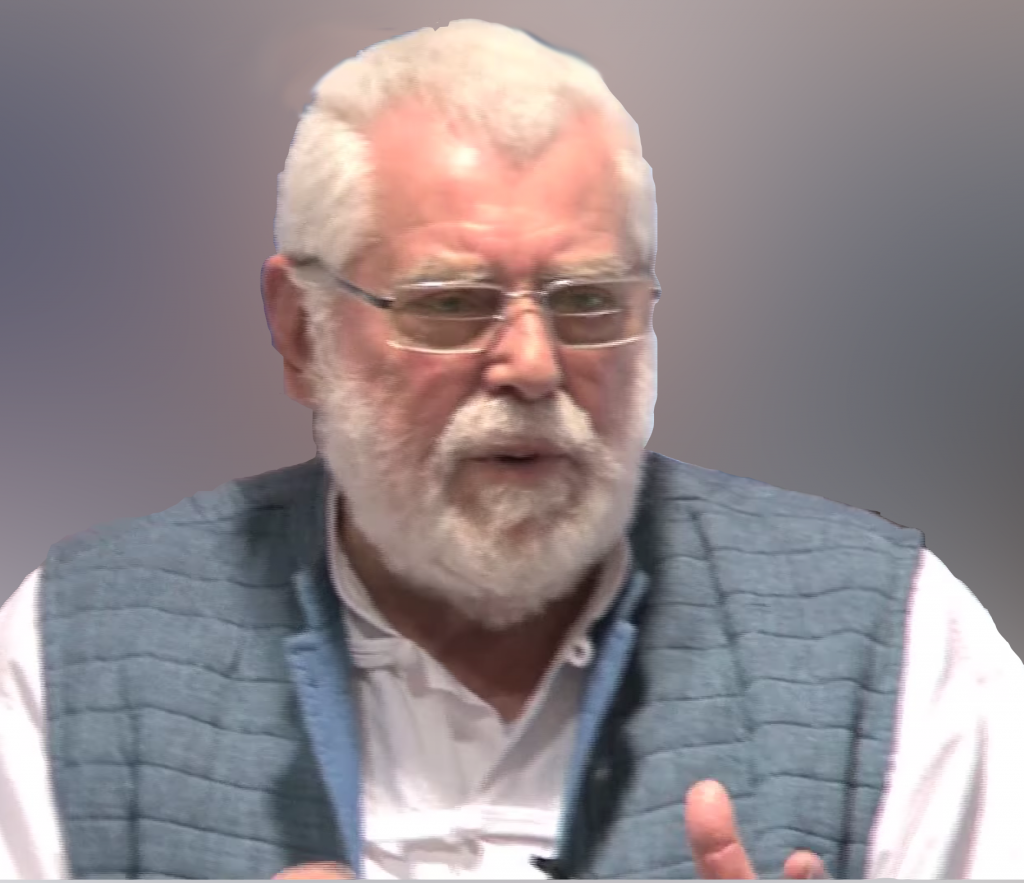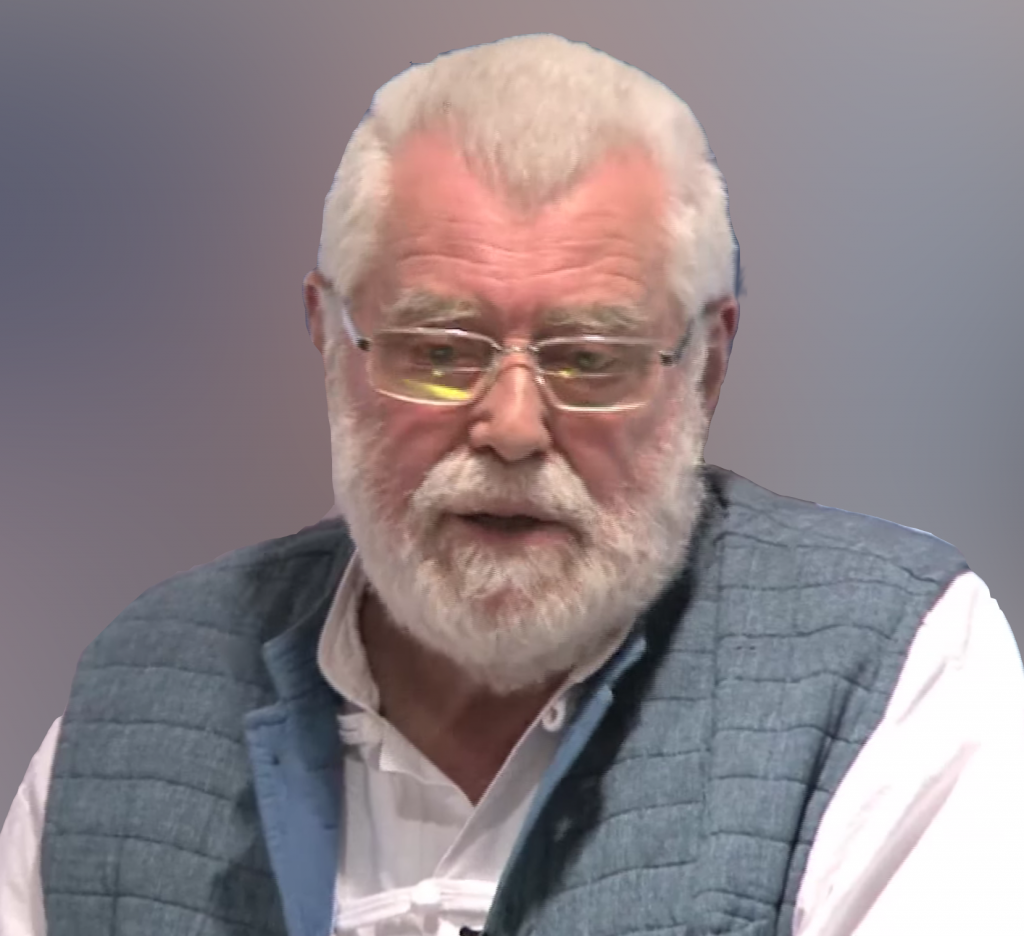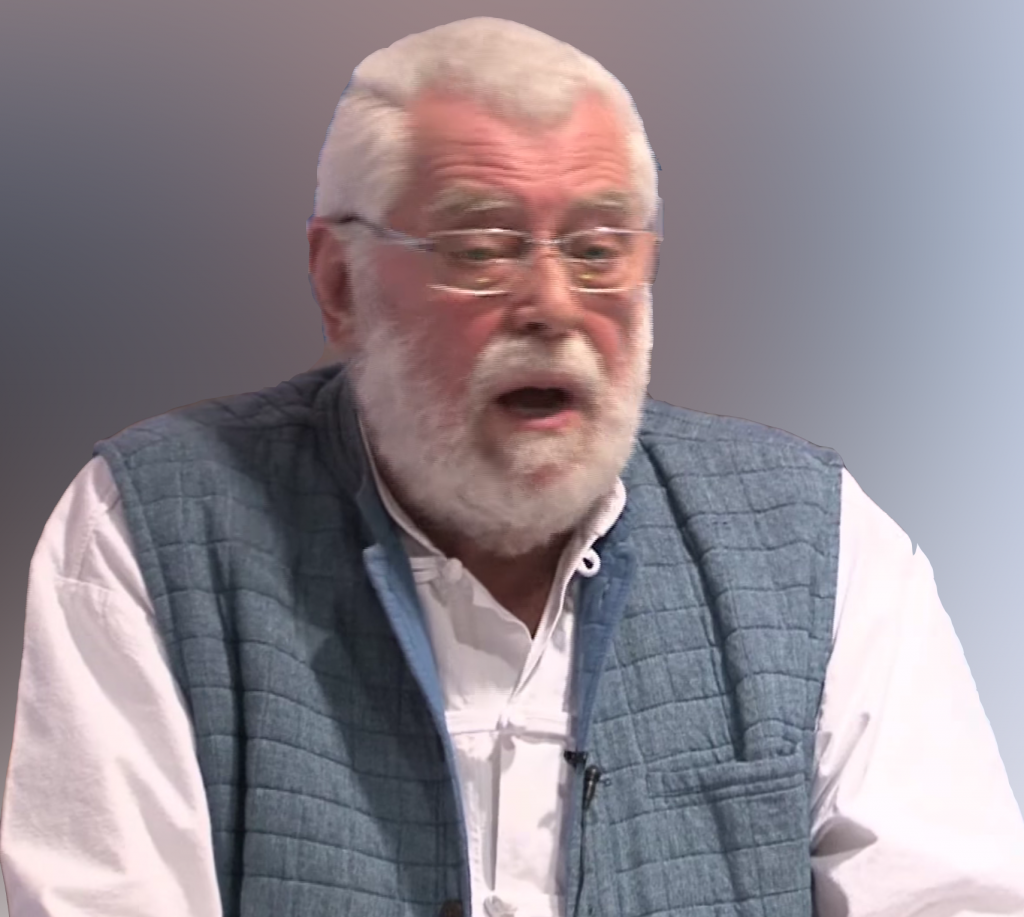Seven Questions for Alan Maley
 “Life would be dull without creativity”, and “Creativity encourages risk taking”, Mr. Maley said in his talk at the launch of the most recent volume on creativity, Creativity in the English Language Classroom , a volume which he co-edited with Nik Peachy and for which he was an important inspiration.
“Life would be dull without creativity”, and “Creativity encourages risk taking”, Mr. Maley said in his talk at the launch of the most recent volume on creativity, Creativity in the English Language Classroom , a volume which he co-edited with Nik Peachy and for which he was an important inspiration.
As one of the contributors in this volume, I had first hand experience of his skilful and meticulous editing and must confess to being an early follower of his work, very much inspired by the ideas related to including literary text in the ELT classroom – I still use many of the ideas he shared in early workshops on using poetry and have published at least three books on class materials using literary text.
Alan Maley’s writings have inspired many teachers to be more creative over the years, not just me. He has been a familiar and very important voice in ELT for a very long time and has always been a champion of allowing learners to escape the confines of the coursebook and letting their imagination run free.
In those days, we did not call this a creativity drive but creativity it was!
In more recent times, and since Sir Ken Robinson’s celebrated talk, many have “come out in the open” as it were and, indeed, the evidence of how keen ELT teachers are to embrace the idea that teaching and learning should be more creative is phenomenal. Alan Maley has written many books which have shaped the thinking of many educators and recently started the C Group, a community of educators promoting creativity in English Language Teaching.
In a world of ELT governed by publishers and examining bodies, a movement of teachers, teacher educators, lecturers, professors and writers is more than fitting.
We need more voices like Alan Maley’s in the fight against boring and mundane textbook content.
Alan Maley has been invited to be a plenary speaker at TESOL Greece 2016 and I am very pleased to be sharing this interview with my blog readers.
Question 1
 Your recent focus on creativity has been expressed in so many different ways – book, seminars, webinars, an online community and more – what are the essentials on which teachers can build in order to be more creative?
Your recent focus on creativity has been expressed in so many different ways – book, seminars, webinars, an online community and more – what are the essentials on which teachers can build in order to be more creative?
I hope it is not just me who is focusing on creativity. As you know, the foundation of the C group (http://thecreativitygroup.weebly.com ) has sparked a wave of enthusiasm among many colleagues for the encouragement of more creative approaches at all levels. And the recent British Council publication (http://englishagenda.britishcouncil.org/books-resource-packs/creativity-english-language-classroom), to which both you and Chryssa contributed, has many practical suggestions for implementing this. Any teacher who is looking for some creative ideas will certainly find some here. And there are resource materials readily available. (Bilbrough 2011, Pugliese 2010, Wright 2014).
In addition to specific teaching ideas, I have also suggested that teachers can develop their own creative activities by applying a number of principles: using heuristics like ‘Do the opposite’, using the random principle, using the withholding of information principle, using the constraints principle, etc.
But, over and above practical tips and techniques, I think there are deeper level considerations. Essentially, the teacher who wishes to implement more creative ideas into her teaching needs to believe passionately that this is both possible and desirable – and that it is not just a ‘wet Friday afternoon extra’. Those who commit to this belief will find that they are constantly on the lookout for doing things differently not just in terms of activities for the classroom but in the way they plan their work, the way they relate to their students, and to the way they deal with life.
Question 2
Your publications and talks show how much you are engaged in perfecting the skills (artistry) of a teacher, from using one’s voice effectively to understanding and exploiting literary text in the classroom and, more recently, developing one’s creativity. Does technology feature in all this, if at all?
Technology certainly should feature in all of this. The problem about technology for ELT has been how to integrate it appropriately. Technological innovations in themselves are no more than tools. So we need to think about them not as a substitute for creativity but as tools in the service of creativity. Some years ago now, Claire Kramsch (1997 ) claimed that we ask the wrong question whenever a new piece of technology comes along. Rather than asking, ’Here is a nice new piece of technology – what can I use it for?’ she suggested we should be asking, ‘Here is a pedagogical problem – what technological resources do I have to address it?’ Unfortunately, her advice has not yet been widely heeded, and there is a tendency for the ‘new toy’ effect to prevail.
Fortunately, there are a few brave colleagues who continue to try to make sense of the bewildering and constantly evolving variety of technological options available. Gavin Dudeney and Nicky Hockly’s ‘How to Teach English with Technology’(2007) is invaluable, as is Russell Stannard’s free website www.teachertrainingvideos.com And both Nicky Hockly and Russell Stannard write regular technology-related feature articles in English Teaching Professional.
The recent articles by Jamie Keddie in English Teaching Professional have explored ways of using student-made You Tube videos, while Daniel Monahan and Tessa Woodward are running a series of articles on ‘Bridging the Technophobe-Technophile Gap’. So there is some hope we may eventually find ways of using technology appropriately.
Among the greatest advantages of the new electronic technologies are the fact that they make possible more personalised, individualised learning, that they can provide instant access to a wealth of visual and audio resources and that they enable learners to go on learning outside the classroom.
Question 3
For many teachers, your work on exploiting literary excerpts in the ELT classroom has been an inspiration – in a world of information overload, do you believe that a focus on literature is still important and why?
– in a world of information overload, do you believe that a focus on literature is still important and why?
I most certainly do advocate the use of literary texts within an overall approach which makes appeal to the aesthetic dimensions of language. Most of our teaching is heavily weighted towards the cognitive side with a relative neglect of the affective dimension (Arnold 1999). That is why I have been advocating a greater role for affect through the use of drama, music, art, film – and of course, literature.
The benefits are manifest to those willing to give it a try. The most common justifications for using literature are the linguistic, cultural and personal growth arguments. Literature offers rich linguistic input (the richest there is) and many possible and creative ways of utilizing that input (Duff & Maley 2007). Literature opens doors on cultural difference and scope for exploring cross-cultural awareness. It is also argued that literature helps learners to make sense of the world and of themselves within it: that they ‘grow’ personally through exposure to literature. This argument meshes nicely with the current interest in critical thinking and life skills. To these I would add a pedagogical argument. Creative use of literary texts (including creative writing by the learners themselves) tends to make learning more interesting and stimulating, so that levels of motivation rise accordingly.
Question 4
Joining a professional teacher association is something which you have suggested as a great way to keep up with one’s professional development. What do you think about using social networks for this, online communities of practice like Facebook and Twitter (to mention the two most popular).
I do not myself belong to any of the social networking sites. The current obsession with compulsive, constant, instant and ubiquitous communication does not appeal to me. I prefer less quantity and greater quality in the interactions I have with other people. (For anyone interested in the wider effects of social networking and other uses of the electronic media, I recommend Susan Greenfield’s recent book ‘Mind Change’ 2014.)
My reasons are personally relevant for me, though I recognize that many others do not share my opinions. For one thing, I am wary of the triviality which characterizes so many blogs and tweets. Communication just for the sake of it is not up my alley. Tweeting, Facebook and the like also take up massive amounts of time, which, at my age, is a commodity I am personally short of. I am also frankly sceptical of the ultimate usefulness of much of this cyber-communication. Simply exchanging information (even when it is relevant information) is not much use unless we do something with it. The speed and volume of information exchange is now so great that it has become quite difficult to absorb it, reflect on it, discriminate between what is and is not useful, join up the dots, and do something with it.
However, I realise that social networking does offer an unprecedented opportunity for interaction and that this can have beneficial effects, provided it is appropriately used. It may be particularly valuable for teachers who feel themselves isolated where they are cut off from professional contact and have restricted access to materials.
Question 5
In a recen t online conversation related to an article you submitted to a refereed journal, you mentioned your views on researchers and teachers. Would you like to summarize your views here and suggest where we may be able to read your article?
t online conversation related to an article you submitted to a refereed journal, you mentioned your views on researchers and teachers. Would you like to summarize your views here and suggest where we may be able to read your article?
I think you are referring to my recent mailing to colleagues about a shocking piece of behaviour to an author (me) from a major publisher (Routledge). Effectively, the publisher had over-ridden the editor and insisted that my chapter be withdrawn from the book he was editing because my views on research did not conform to those of the academic editors of the series.
Essentially, what I was arguing in my chapter was that research carries undue weight compared with teaching, that there is in fact, no necessary connection between research and the quality of teaching, that much research is irrelevant, inaccessible and has yielded very modest results, which do not justify the amount of time, energy and money spent on it. I argued for an alternative approach which I call ‘Inquiry’ and which can be carried out without the elaborate apparatus required by more formal research. For an earlier version of this argument, you can check an article I wrote for HLT Mag (Maley 2005).
Question 6
Do you believe that teachers should receive training or is training not necessary in order to develop your teaching skills? What does your own ‘story’ as an ELT professional suggest?
Some time ago Penny Ur addressed this question in an article titled ‘Are Teachers Born or Made?’ (Ur 1997/8) I tend to agree with her commonsensical conclusions based on a survey of teachers. Clearly, there are some people who have a ‘natural’ aptitude for teaching. While they do not strictly speaking need much training, they can still benefit from a grounding in the principles and practices of good language teaching. For those less well-endowed with this aptitude, a more rigorous kind of training will undoubtedly help. And there are almost certainly some people who should not be teaching at all.
One of the problems is that, while training may be necessary, it is rarely sufficient. We have tended to concentrate on imparting knowledge and skills and have neglected attitudes and atmosphere. Most training aims to prepare teachers for the predictable, (hence the concentration on lesson plans), whereas most of what happens in the real classroom event is not predictable at all. It is ‘dark matter’, as Adrian Underhill describes it (Underhill & Maley 2012). A big issue with training for me then is how, if at all, can we help teachers attain a state of preparedness, where they can deal with whatever arises, rather than simply training them in preparation for situations which may never arise.
 Question 7
Question 7
“ How will English be taught in 10 years time? Who knows? Probably much like it is now – mostly badly. “ , you said in an interview for ELTNEWS.com a few years back. Have your views changed or not?
The relentless pressure on teachers to conform to ever tighter institutional constraints – curricular and syllabus specifications, graded objectives, test and exam-driven programmes, etc. gives teachers very little encouragement to develop in creative ways. For as long as we regard language teaching as ‘instruction’ rather than ‘education’, I do not see things getting any better. This is not to say that there is no good teaching nor that all teachers teach badly. There are admirable cases of teachers standing up to the institutional constraints under which they work or quietly subverting them (Postman and Weingartner 1971).
I recently gave a talk about 10 great educators, including Dewey, Steiner, Montessori, AS Neill, Freire, John Holt, Ken Robinson, etc. I found that, despite differences of detail and emphasis, their essential beliefs were the same. I then compared these beliefs with those currently dominant in institutional educational systems. There was zero overlap. That is profoundly discouraging. I have copied my chart of these beliefs etc. below, in case anyone is interested.
Great educators Public education
Freedom Control
Diversity/creativity Conformity/mediocrity
Bottom-up Top-down
Children first System first
Synthesis Analysis
Facilitation Compulsion
Inquiry / asking Facts /telling
Evolving curriculum Prescribed curriculum
Unhappily, we live in a ‘control’ culture which believes that everything can be measured, and that one size should fit all. Teachers tend to be made to fit a standardised mould. Effectively, those in authority do not trust teachers to teach effectively, and that is why so many controls are in place. Yet in the educational sphere, control is an illusion. One of the aims of the C Group, already mentioned above, is to try to restore creative potential to teachers.
References:
Arnold, J. 1999. Affect in Language Teaching Cambridge: Cambridge University Press..
Bilbrough, N. 2011. Memory Activities fir Language Learning. Cambridge: Cambridge University Press.
Dudeney, & N. Hockly. 2007. How to Teach English with Technology Harlow: Pearson.
Duff, A. & A. Maley. 2007. Literature. Oxford: Oxford University Press
Greenfield, S. 2014. Mind Change London: Rider/Ebury.
Kramsch, C. 1997 Language Teaching in an Electronic Age. In George M. Jacobs (ed.) Language classrooms of tomorrow: Issues and Responses. Singapore: SEAMEO Regional Language Center, 1997, 105-117.
Maley, A. 2005. A modest proposal: From research to inquiry. HLT Mag.com Year 5, Issue 6. Nov. 05
Postman, N & C. Weingartner 1971. Teaching as a Subversive Activity. New York: Delta books
Pugliese, C. 2010. Being Creative. London: Delta.
Underhill, A & A. Maley 2012. Expect the unexpected. English Teaching Professional. Issue 82, Sept. 2012: 4-7.
Ur, P. 1997 Are teachers born or made? Paper given at IATEFL Brighton 1997, later published in IATEFL Newsletter 1998.
Wright, A. 2014. Creativity in the Classroom. Godollo: International Languages Institute.
Links mentioned
The C Group http://thecreativitygroup.weebly.com
Creativity in the English Language Classroom http://englishagenda.britishcouncil.org/books-resource-packs/creativity-english-language-classroom (A free download)
 Alan Maley worked for The British Council from 1962 to 1988, serving as English Language Officer in Yugoslavia, Ghana, Italy, France, and China, and as Regional Representative in South India (Madras). From 1988 to 1993 he was Director-General of the Bell Educational Trust, Cambridge. From 1993 to 1998 he was Senior Fellow in the Department of English Language and Literature of the National University of Singapore, and from 1998 to 2003 he was Director of the graduate programme at Assumption University, Bangkok. He is currently a freelance consultant, and Series Editor for the Oxford University Press Resource Books for Teachersseries.
Alan Maley worked for The British Council from 1962 to 1988, serving as English Language Officer in Yugoslavia, Ghana, Italy, France, and China, and as Regional Representative in South India (Madras). From 1988 to 1993 he was Director-General of the Bell Educational Trust, Cambridge. From 1993 to 1998 he was Senior Fellow in the Department of English Language and Literature of the National University of Singapore, and from 1998 to 2003 he was Director of the graduate programme at Assumption University, Bangkok. He is currently a freelance consultant, and Series Editor for the Oxford University Press Resource Books for Teachersseries.
His publications include Resource Books for Teachers: Literature, Beyond Words, Sounds Interesting, Sounds Intriguing, Words, Variations on a Theme, and Drama Techniques in Language Learning (all with Alan Duff), The Mind’s Eye (with Françoise Grellet and Alan Duff), Learning to Listen and Poem into Poem (with Sandra Moulding), Short and Sweet, and The English Teacher’s Voice.

Marisa Constantinides studied Applied Linguistics at the University of Reading and has been a TEFL teacher, trainer, ELT writer & conference speaker for 20+ years. She is the Director of CELT Athens, a Cambridge CELTA and Delta centre. She is also moderator of #ELTchat on Twitter and a regular blogger. She has published books for young learners, books on using literary texts, and numerous articles on teaching, learning and educational technology. Her most recent role is that of Community Manager for the Learning Technologies SIG.



It is a very interesting article to encourage a new attitude in presenting and practicing language teaching.It involves a different way to appproach lessons exploring and inquiring rather than following a standard pattern that means you intend to carry out constructive imagination and topic-addressed procedures. The content prevails and learning strategies are chosen actively with self-motivation. The teaching process develops creativity and ability to resolve problems and manage plans of life neglecting uniformity and building up individuality, giving people resources to realize themselves.
Thanks for comment, Luisa. I hope you will be downloading the book linked in the article. It’s a free download and some excellent people have written chapters which you will be able to use straight away.
Marisa
I have downloaded the book and I will read it to find out strategies and ideas to practice in class with students. I hope it will be the occasion to exchange suggestions and reflections, to improve researches and plans. The content,as liated in the index,seems very interesting and useful giving prompts to explorations and realizations. I thank you for your kind attention.